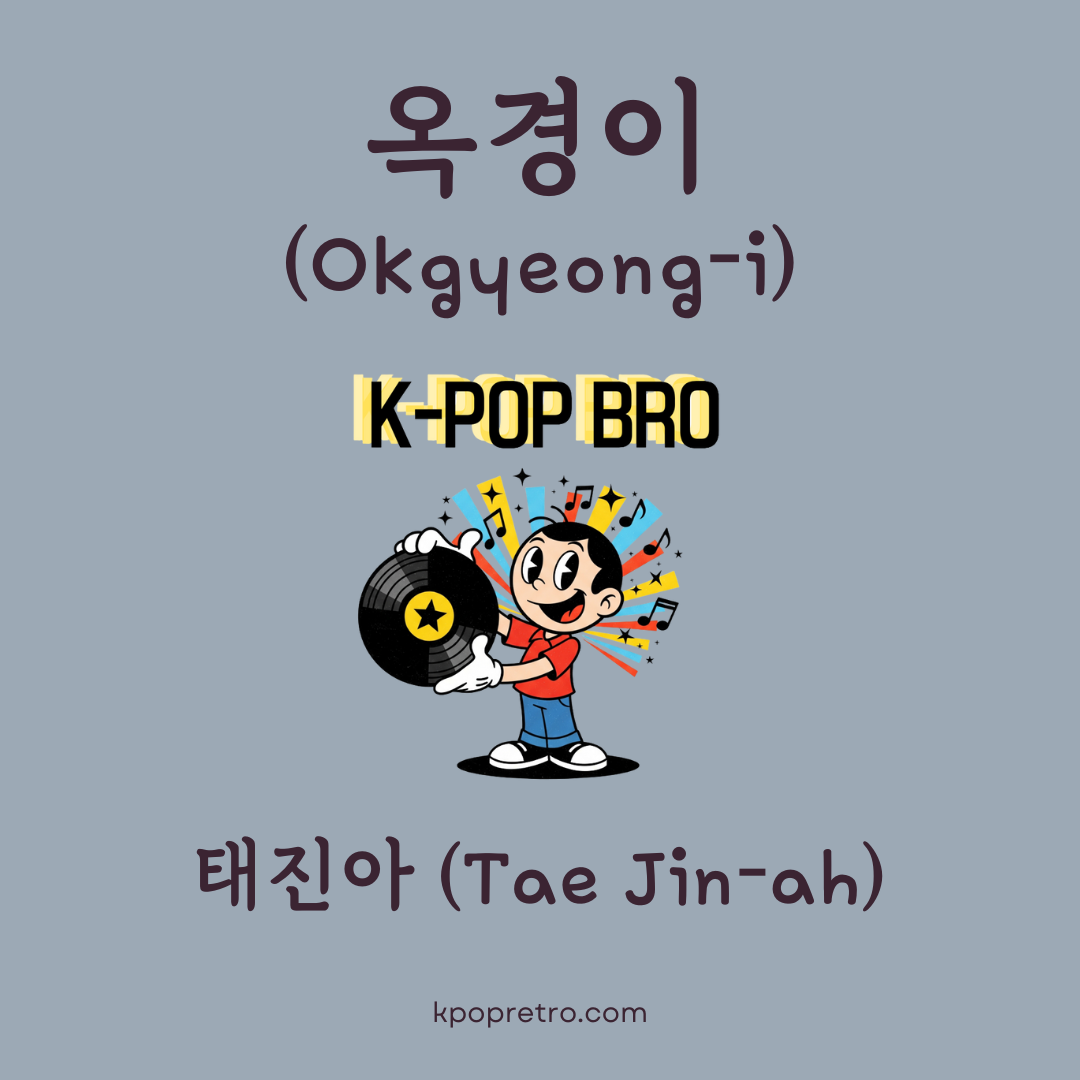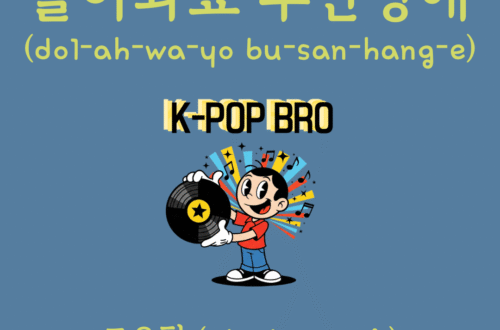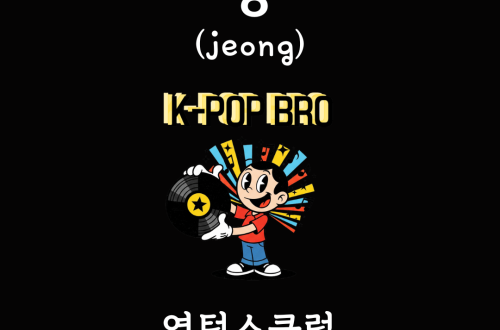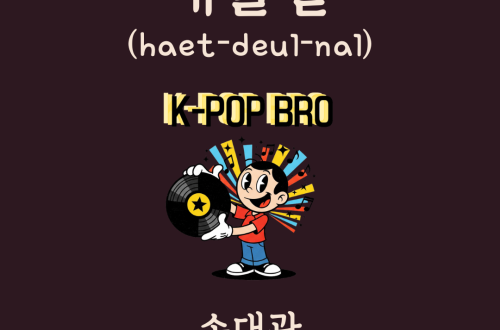The Emotional Core of Tae Jin-ah’s ‘옥경이’
Do you want to understand the deep, collective emotional core of Korean popular music that lies beneath the surface of K-Pop? Tae Jin-ah’s ‘옥경이 (Okgyeong-i)’, released in 1989, is not just a song; it’s a cultural landmark and a definitive piece of the modern Trot genre.
Foreign audiences often encounter the vibrant energy of K-Pop but miss the foundational, profound emotional power of Trot. This genre, and this song in particular, speaks directly to the history and shared sentiment of the Korean people.
I remember my grandmother would always tear up when this song played. It showed me that its emotion transcends simple musical trends and speaks to a deep, shared national experience. We’ll dive into the unique characteristics of the Trot genre, the song’s iconic vocal style, and why Tae Jin-ah’s ‘옥경이’ remains an essential Korean cultural touchstone.
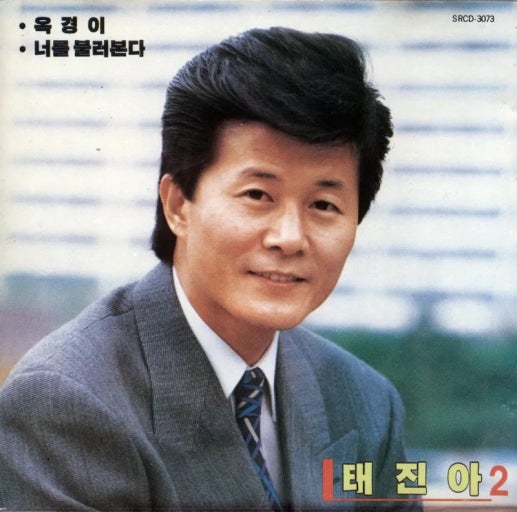
Core Concept: Defining the Soul of Modern Trot
‘옥경이’ is a quintessential example of traditional Korean Trot. This genre is defined by a distinctive “bounce” rhythm, deeply expressive vibrato, and a lyrical focus on themes of longing, separation, and deep, often melancholic emotion.
The core concept of this song is Narrative Storytelling. The music prioritizes a clear, emotional vocal delivery to tell a moving, personal story of yearning and heartbreak.
- The Sound: The arrangement typically features brass instruments, strong drums, and synthesized orchestral sounds, all supporting the singer’s voice, which is the emotional focal point.
- The Narrative: The song directly addresses ‘Okgyeong-i’ (a common Korean female name), establishing an intimate, personal story of missing a loved one.
- The Genre’s Crossover: Tae Jin-ah pioneered a modern, polished sound of Trot that successfully bridged the gap between older, traditional fans and the younger, commercial music audience, significantly boosting the genre’s popularity.
This focus on sincerity and shared emotional experience is what gives Trot its enduring strength. Next, we will explore the signature vocal techniques that make this genre unique.
Mastering the Signature Trot Vocal Style
The emotional execution and specific vocal techniques in Trot music are crucial, and Tae Jin-ah’s performance in ‘옥경이’ is a masterclass in this style.
Here are five elements of his iconic technique in ‘옥경이’:
- Gakgi (꺾기) Vibrato: This is the signature, rapid, almost sharp vocal modulation unique to Trot. It is used intentionally to heighten emotional tension and express deep sorrow or longing.
- The Conversational Tone: The song is delivered with a sense of intimate directness, almost as if the singer is speaking or confessing a personal tragedy directly to the listener.
- The Melodic Simplicity: The core melody is clean and straightforward. This structure is intentional, ensuring the listener’s focus remains entirely on the lyrics and the raw, expressive vocal delivery.
- Dramatic Build-up: The song slowly and steadily builds emotional tension, often culminating in a powerful, sustained high note that provides a dramatic, cathartic release for the accumulated feeling.
- Relatable Title: The use of the name ‘옥경이’ itself instantly makes the story personal and relatable to anyone who knows someone by that name or has lost a love.
The true emotional weight, however, is carried not just by the voice, but by the lyrics themselves.
Key Moments: The Visuals and Lyrics
Trot music videos often prioritize the singer’s emotional performance and the story’s narrative over complex visuals or choreography. The power of ‘옥경이’ lies in its lyrical depth.
| 희미한 불빛 아래 마주 앉은 당신은 언젠가 어디선가 본 듯한 얼굴인데 고향을 물어 보고 이름을 물어봐도 잃어버린 이야긴가 대답하지 않네요 바라보는 눈길이 젖어있구나 너도나도 모르게 흘러간 세월아 어디서 무엇을 하며 어떻게 살았는지 물어도 대답 없이 고개 숙인 옥경이 바라보는 눈길이 젖어있구나 너도나도 모르게 흘러간 세월아 어디서 무엇을 하며 어떻게 살았는지 물어도 대답 없이 고개 숙인 옥경이 | Sitting across from you beneath the dim light, You have a face that I feel I’ve seen somewhere, sometime. I ask about your hometown and your name, But perhaps it’s a forgotten story—you don’t answer. The gaze in your eyes is wet with tears. Oh, the time that has passed without either of us knowing. Where have you been, what have you been doing, how have you been living? Even when I ask, Ok-gyeong bows her head without a word. The gaze in your eyes is wet with tears. Oh, the time that has passed without either of us knowing. Where have you been, what have you been doing, how have you been living? Even when I ask, Ok-gyeong bows her head without a word. |
Checklists: Why ‘옥경이’ Became a Trot Benchmark
The enduring legacy of ‘옥경이’ is based on its successful navigation of both musical technique and cultural sentiment.
- Masterful ‘Gakgi’ Technique: The skilled vocal execution instantly identified it as high-quality Trot.
- Universally Relatable Narrative: The theme of yearning for a lost love is felt across all cultures and ages.
- Timeless Melody: The simple structure ensures the song is easily recalled and retains its impact over decades.
- Inter-Generational Appeal: The song successfully crossed demographic boundaries, appealing to both older traditionalists and younger pop consumers of the time.
- Strong Emotional Resonance: It serves as a source of comfort and catharsis for listeners experiencing hardship or nostalgia.
- Iconic Singer Status: The song helped solidify Tae Jin-ah as an undisputed figure, often called a “Trot Emperor.”
This track is an essential study in the power of sincerity in music.
Case Studies: The Cultural Touchstone
The influence of Tae Jin-ah’s ‘옥경이’ goes far beyond its initial chart success. Data confirms its unique position as a piece of Korean cultural infrastructure.
The song is continually covered, sampled, and referenced in Korean dramas, films, and variety shows, where it is used as a quick cultural shorthand to evoke nostalgia or deep Korean sentiment. This level of consistent referencing proves its symbolic power. Furthermore, its success demonstrated that even in a rapidly industrializing and modernizing society, a song focused on deep, classic Korean emotions could remain highly profitable and dominant in the popular music landscape.
The deep connection this song fosters is its most impressive, lasting achievement.
Frequently Asked Questions about ‘옥경이’
What exactly is the Trot genre? Trot is the oldest form of Korean popular music. It’s characterized by a specific two-beat rhythm and highly emotional vocal modulation, often dealing with themes of life, love, and destiny.
Is the name ‘옥경이’ a real person? Yes. The song’s title, “Ok-gyeong,” is named after Tae Jin-ah’s wife. The original title was reportedly “Hometown Woman.”
Why does Tae Jin-ah’s ‘옥경이’ sound so different from K-Pop? Trot prioritizes vocal emotion, storytelling, and vibrato over complex dance choreography and fast tempo drops. The instrumentation also uses more traditional acoustic or synthesized versions of big band/orchestral sounds.
Why is vibrato (Gakgi) so important in Trot? The rapid, deep vibrato known as Gakgi is the primary tool Trot singers use to express intense emotional depth, often signifying a feeling of han (a deep, complex sense of sorrow or unresolved longing).
Conclusion and Takeaway
‘옥경이’ is a foundational masterpiece of modern Trot, defined by its universal, emotional narrative and the masterful application of the genre’s signature vocal techniques. The song’s enduring power lies in its ability to connect directly with the listener’s own feelings of longing and memory.
Remember that understanding Korean musical history requires looking beyond K-Pop. Listen closely to the raw, sincere storytelling found in Tae Jin-ah’s ‘옥경이’ to truly appreciate the depth of Korean sentiment.
Next Action Proposal
To deepen your understanding, search for a live stage performance of ‘옥경이’ to fully appreciate the dramatic vocal delivery and the immediate emotional connection the song creates with the Korean audience.
